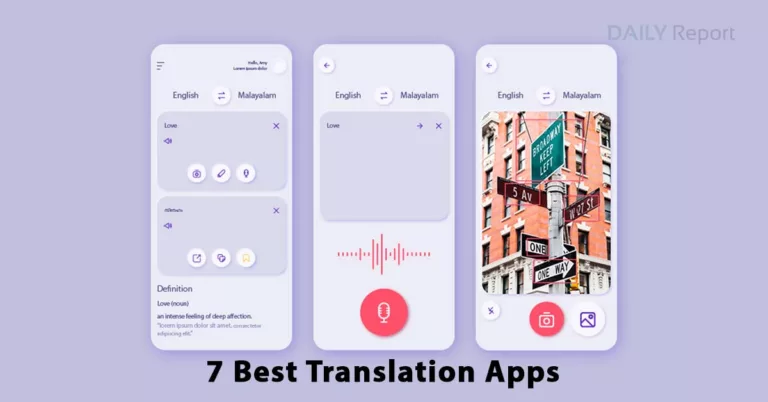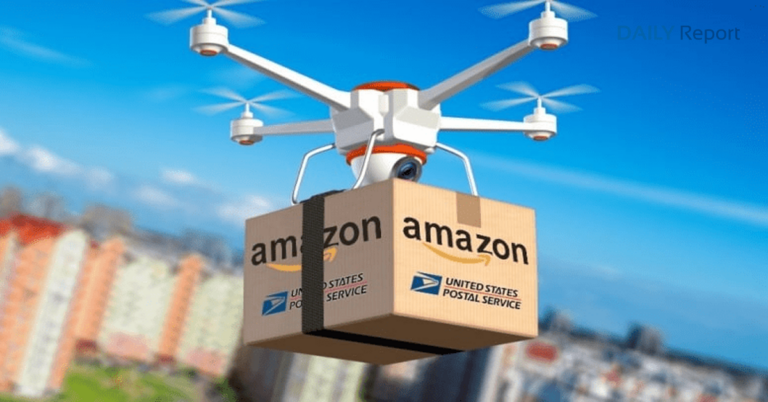The Impact of AI on Our Daily Lives 2023
The Impact of AI on Our Daily Lives
The Impact of AI on Our Daily Lives: Artificial Intelligence (AI) has been transforming our world in significant ways for several years now, and its impact on our daily lives is becoming increasingly pronounced. In the past, AI was primarily associated with science fiction, but today it has become a reality that is changing the way we live, work, and interact with each other. In this blog post, we will explore the impact of AI on our daily lives in depth and examine how it is changing the world we live in.
What is AI?
AI is an umbrella term that refers to the ability of machines to simulate human intelligence. This involves programming machines to perform tasks that would normally require human intervention, such as learning, problem-solving, decision-making, and perception. AI is based on the idea that machines can be taught to think and act like humans, using algorithms and machine learning techniques to recognize patterns, analyze data, and make decisions based on that data.
The Impact of AI on Our Daily Lives :AI has been around for several decades, but it has only been in recent years that it has become a mainstream technology. The development of more powerful computers, the availability of large datasets, and the emergence of deep learning algorithms have all contributed to the growth of AI in recent years. Today, AI is being used in a wide range of applications, including healthcare, finance, transportation, and education.
How is AI Impacting Our Daily Lives?
AI is impacting our daily lives in numerous ways, and its impact is only set to grow in the future. Here are some of the ways in which AI is transforming our world today:
1. Personalization
The Impact of AI on Our Daily Lives: AI is being used to personalize our online experiences, whether it be through targeted advertising, personalized recommendations, or customized search results. By analyzing our online behavior, AI algorithms can determine what we like and dislike, and then tailor our online experiences to match our preferences. This has led to a more personalized online experience for users, but it has also raised concerns about data privacy and the potential for manipulation.
2. Healthcare
The Impact of AI on Our Daily Lives: AI is being used in healthcare to diagnose diseases, develop treatment plans, and improve patient outcomes. Machine learning algorithms can analyze large datasets of medical records and identify patterns that may be missed by human doctors. This has the potential to improve the accuracy of diagnoses and reduce the risk of misdiagnosis. AI is also being used to develop personalized treatment plans based on a patient’s unique genetic profile and medical history.
3. Education
The Impact of AI on Our Daily Lives: AI is being used in education to personalize learning experiences for students, track student progress, and identify areas where students may need additional support. By analyzing student data, AI algorithms can determine which learning methods are most effective for each student and then tailor their education accordingly. This has the potential to improve student outcomes and make education more accessible to a wider range of students.
4. Transportation
The Impact of AI on Our Daily Lives: AI is being used in transportation to improve safety and efficiency. Self-driving cars, for example, use AI algorithms to analyze their environment and make decisions about how to navigate the road. This has the potential to reduce accidents caused by human error and improve traffic flow. AI is also being used to optimize logistics and supply chain management, reducing delivery times and improving customer satisfaction.
5. Entertainment
The Impact of AI on Our Daily Lives: AI is being used in the entertainment industry to create more immersive experiences for audiences. AI algorithms can be used to create personalized content recommendations for viewers, analyze audience engagement, and even generate new content. This has the potential to improve the quality of entertainment and make it more engaging for viewers.
Challenges of AI
While AI has the potential to transform our world in positive ways, it also poses significant challenges that must be addressed. Here are some of the key challenges associated with AI:
1. Ethical Concerns
AI raises significant ethical concerns, particularly when it comes to privacy and data protection. As AI becomes more advanced, there is a risk that it could be
used to manipulate people or make decisions that have negative consequences. It is important that we have a robust regulatory framework in place to ensure that AI is used ethically and responsibly.
2. Bias
One of the biggest challenges of AI is the potential for bias in algorithms. AI algorithms are only as unbiased as the data they are trained on, and if that data is biased, the algorithm will be biased as well. This can lead to discrimination and reinforce existing social inequalities.
3. Job Displacement
AI has the potential to automate many jobs that are currently performed by humans. While this could lead to greater efficiency and productivity, it could also result in job displacement and increased inequality. It is important that we prepare for the potential impact of AI on the job market and ensure that workers are equipped with the skills they need to succeed in a world where AI is ubiquitous.
4. Security
As AI becomes more advanced, it also becomes more vulnerable to cyber attacks. AI systems are only as secure as their weakest point, and hackers are increasingly targeting AI systems to steal data or cause disruption. It is important that we develop robust security protocols to protect AI systems from cyber attacks.
The Future of AI
AI is still in its early stages, and its full potential has yet to be realized. As AI becomes more advanced, we can expect to see it used in new and innovative ways. Here are some of the key areas where AI is likely to have a significant impact in the future:
1. Healthcare
The Impact of AI on Our Daily Lives: AI has the potential to transform healthcare in numerous ways, from personalized treatment plans to early disease detection. As AI becomes more advanced, we can expect to see it used in new and innovative ways to improve patient outcomes and reduce healthcare costs.
2. Agriculture
AI is already being used in agriculture to improve crop yields and reduce waste. As AI becomes more advanced, we can expect to see it used to optimize every aspect of the agricultural process, from planting to harvesting.
3. Energy
AI is being used in energy to optimize the distribution and use of energy resources. As AI becomes more advanced, we can expect to see it used to develop new and innovative ways of generating and storing energy.
4. Space Exploration
AI is being used in space exploration to analyze data from space probes and rovers. As AI becomes more advanced, we can expect to see it used to develop new and innovative ways of exploring space and discovering new planets.
Conclusion
AI is transforming our world in significant ways, and its impact on our daily lives is only set to grow in the future. While AI poses significant challenges, from ethical concerns to job displacement, it also has the potential to improve our lives in numerous ways, from personalized healthcare to more efficient transportation. As we move forward, it is important that we use AI in a responsible and ethical manner and ensure that it benefits everyone in society, not just a select few. With the right approach, AI has the potential to transform our world for the better.







